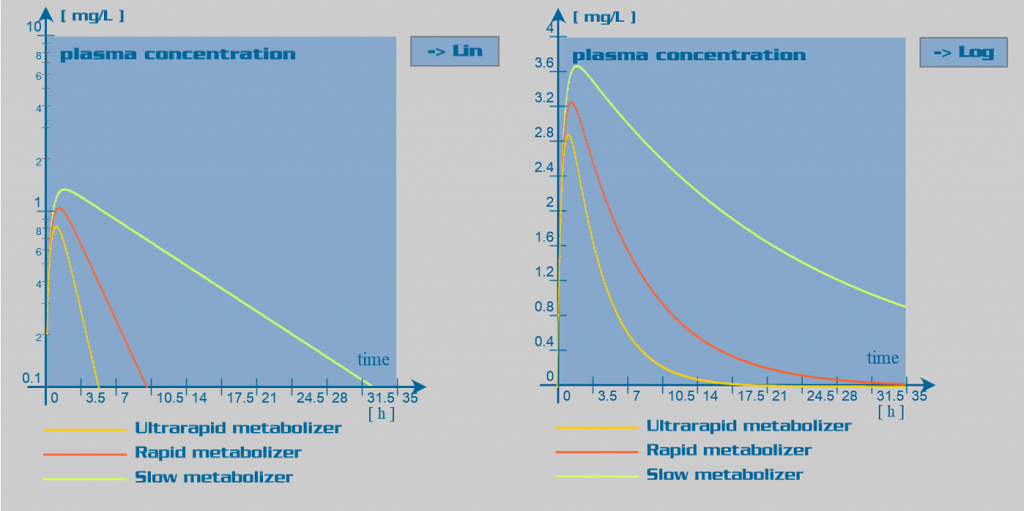“Study of hereditary sources of variation in drug response, their prevalence and mechanism”
Description
Patients vary widely in their responses to drugs. Important factors in variability are drug metabolism and drug transport. Interindividual variation of drug metabolism is due to several factors. Genetic polymorphism is one of them and is defined by the presence, in a normal population, of monogenic traits that exist in at least two phenotypes, neither of which is rare (less than 1%).
Genetic polymorphism of metabolic enzymes may be due to:
- Allelic variants that lead to enzymes with different catalytic activities from that of the wild type form.
- Gene suppression.
- Gene duplication.
- Modification in gene inducibility.
Genetic variability has been historically illustrated by the metabolism of isoniazid. Isoniazid is primarily acetylated in the liver to N-acetylisoniazid, a precursor of a hepatotoxic compound. Large genetically controlled ethnic differences exist in the distribution of acetylator status (slow and rapid acetylators). Adverse effects may occur prevalently in slow acetylators. On the other hand, rapid acetylators may be more susceptible to adverse reactions such as isoniazid-induced hepatic damage. Later on, it has been found that the majority of metabolic polymorphisms involve the isoenzymes of the cytochrome P450 system.

Clinical implications
The clinical implications of genetic polymorphism in drug metabolism depend on whether activity or toxicity lies with the affected substrate or the metabolite, as well as the importance of the pathway to overall elimination. If the parent drug is active, there is a greater likelihood of adverse reactions in poor metabolizers and ineffective therapy in extensive metabolizer. Likewise, if the metabolite is active or toxic, there is a greater likelihood of adverse reactions in the extensive metabolizers and ineffective therapy in the poor metabolizers.
Genetic variability may effect drug clearance but also drug bioavailability (for drugs with a high hepatic extraction ratio).
Related terms
Genotype: Fundamental assortment of genes of an individual.
Genotyping: DNA analysis of a small sample of blood, and characterization of the genes involved in the metabolic pathway of concern.
Phenotype: Outward characteristic expression of an individual.
Phenotyping: Measurements of drug and metabolite concentrations after administration of a drug to an individual. This allows the assessment of the activity of a metabolic pathway in the individual.
Phenocopying: Transformation of an extensive metabolizer into a poor metabolizer by enzymatic inhibitors.

